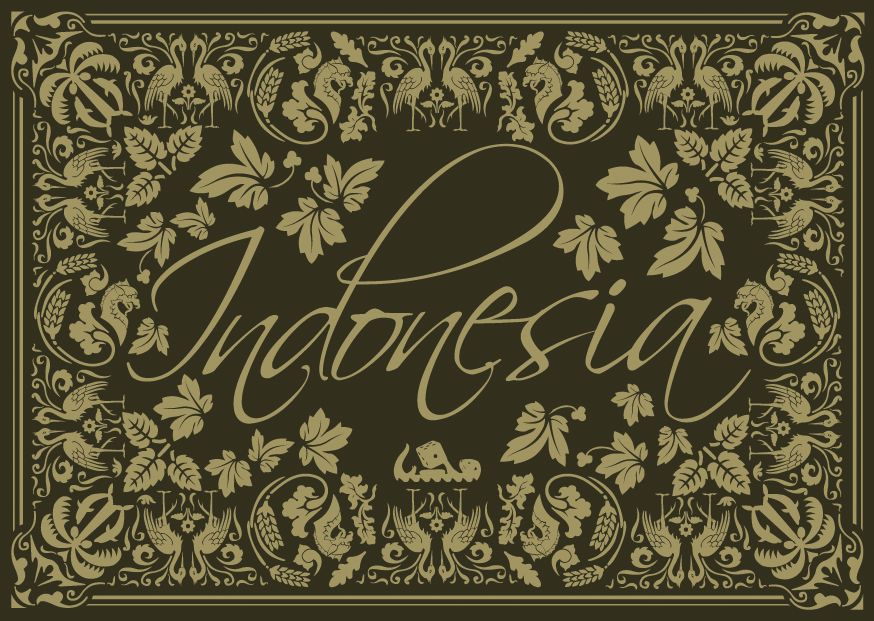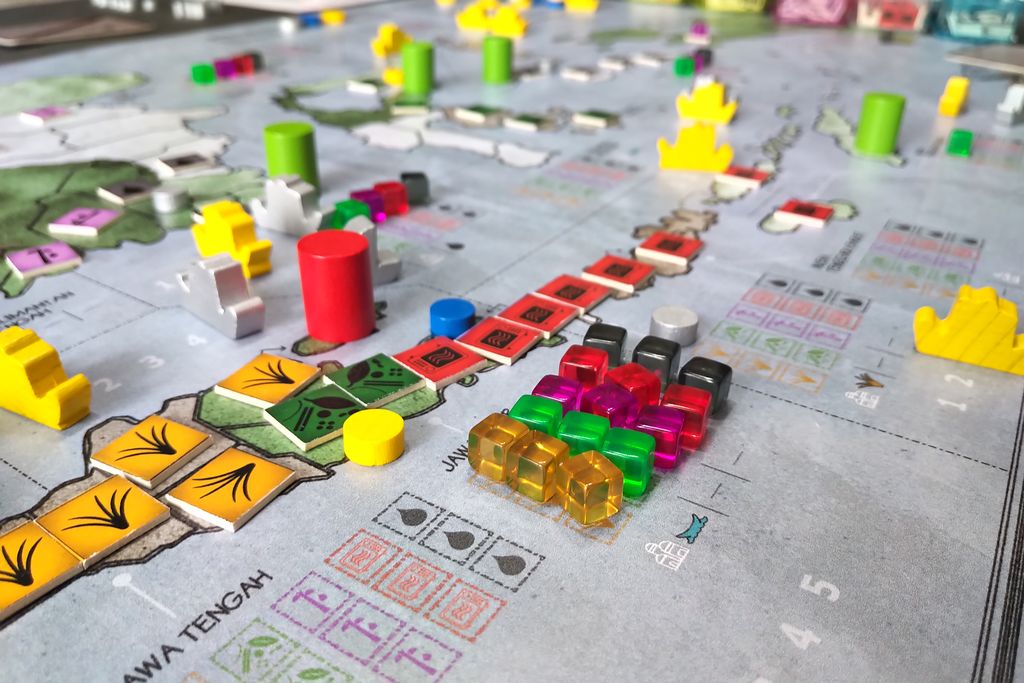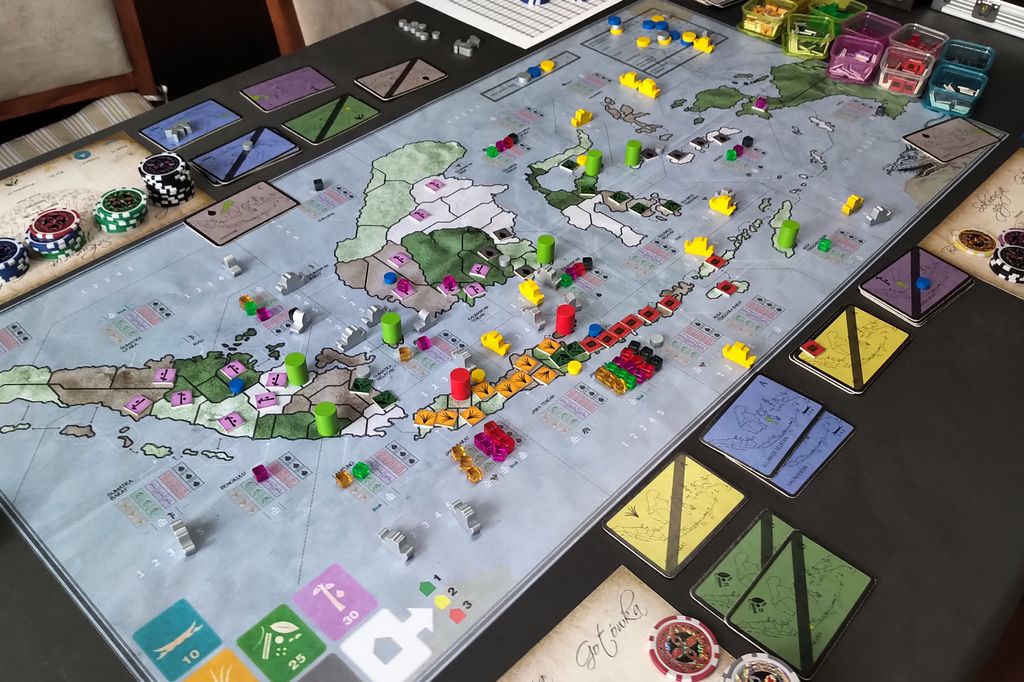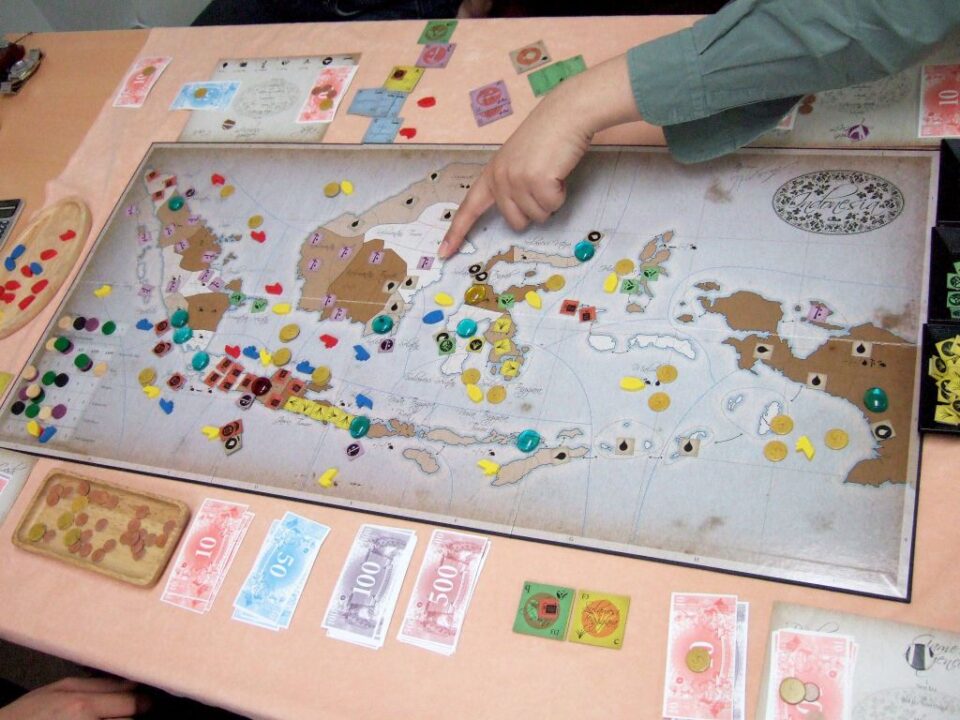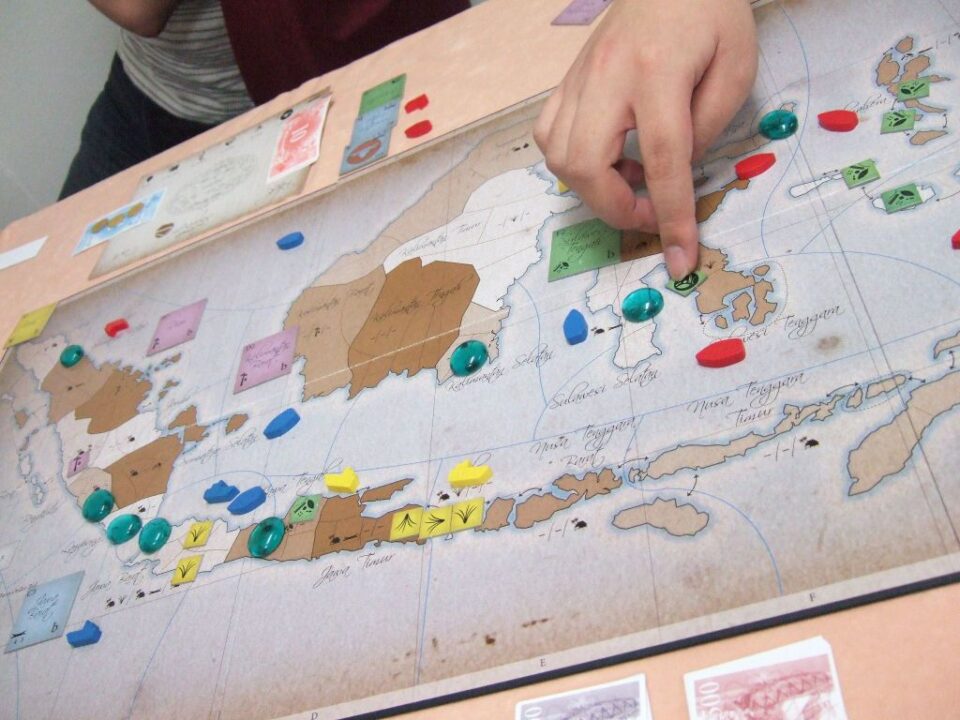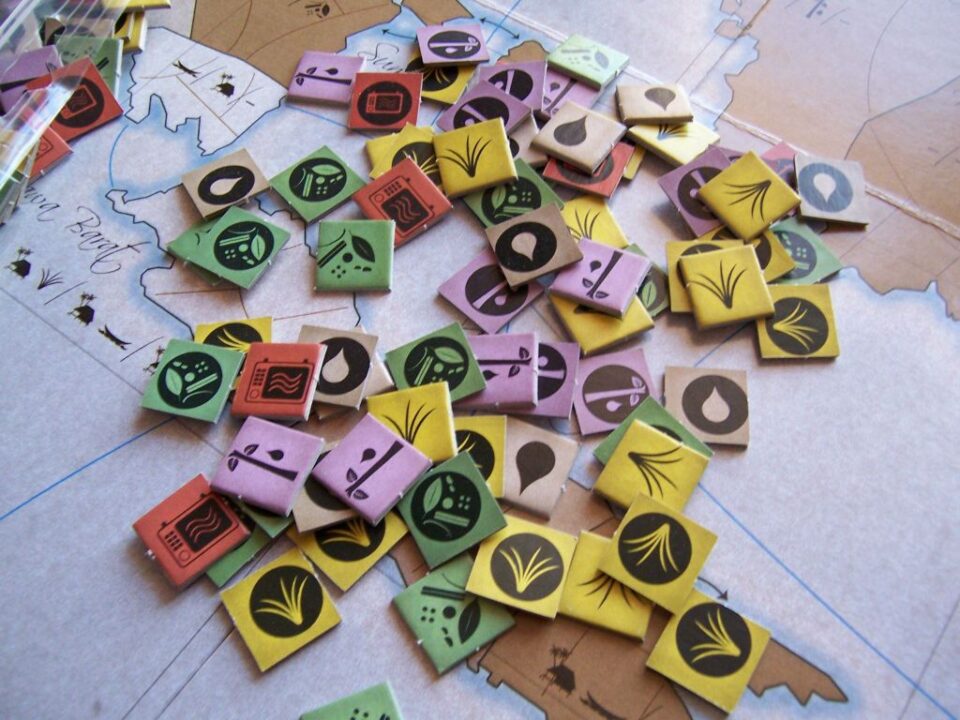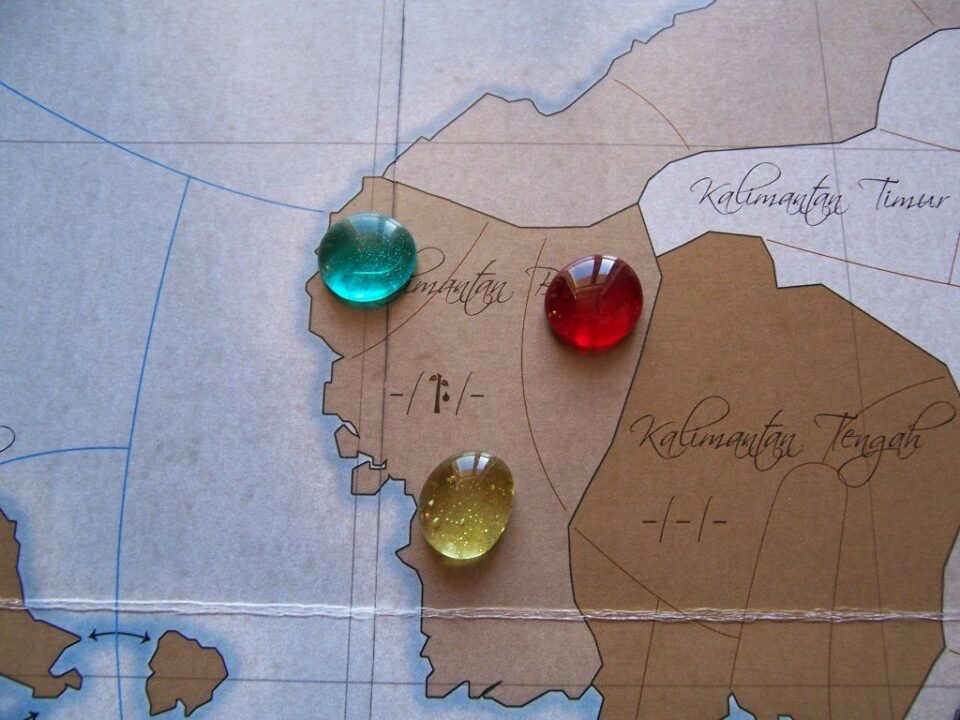Overview
Welcome to my review of ‘Indonesia‘, a board game that embarks players on an epic journey of economic expansion in Southeast Asia. This game isn’t just a journey across the map; it’s a deep dive into the complexities of managing an economy, making strategic decisions, and navigating the competitive waters of mergers and acquisitions. So, grab your ledger, and let’s explore what makes ‘Indonesia’ a standout in the world of strategic board games.
How It Plays
‘Indonesia’ is a fascinating and deep economic board game where players dive into the world of business moguls in the Indonesian archipelago. The game challenges players with managing companies in sectors like shipping, production, and mergers. It’s not just about making money; it’s about making more money smarter and faster than your friends. Let me walk you through the basics.
Setting up
First off, setting up ‘Indonesia’ feels a bit like you’re laying out the foundations of your future empire. You’ll spread the map across the table, which represents various Indonesian islands. Each player chooses a starting position and receives starting capital. Companies are placed near the board, ready for players to start their economic conquest. It feels a bit like you’re about to play a high-stakes game of Monopoly but with spices and ships.
Gameplay
The gameplay in ‘Indonesia’ is where things get juicy. You’ll bid for companies, expand production, and decide on shipping routes—all in the pursuit of becoming the wealthiest tycoon. What makes the game a delightful brain burner is deciding when to merge companies. This isn’t just about growing bigger; it’s about strategically absorbing or being absorbed to maximize profits. My friends and I often find ourselves in intense negotiations, sometimes alliances form, only to be betrayed by a lucrative merger. It’s cutthroat, and it’s brilliant.
Winning the game
So, how do you win in the world of ‘Indonesia’? Well, after a set number of game turns, the player with the most money wins. Sounds simple, right? But the beauty of ‘Indonesia’ lies in the complex strategies that unfold as the game progresses. It’s not just about having the most companies or the biggest ships; it’s about smart investments and timely decisions. Winning feels incredibly rewarding because it’s a testament to your strategic prowess (and maybe a little bit of your ability to outwit your friends).
Want to know more? Read our extensive strategy guide for Indonesia.
Unpacking the Strategic Layers of ‘Indonesia’
When we dive into ‘Indonesia’, the first thing we have to talk about is its gameplay and strategy depth. This isn’t your run-of-the-mill board game; it’s like the chess of economic simulation games. Every move in ‘Indonesia’ feels like you’re making a significant decision that will affect the outcome of your empire. Whether you’re merging companies, expanding your production, or outmaneuvering your opponents in the market, the game demands strategic thinking and forward planning.
The beauty of ‘Indonesia’ lies in how it balances complex strategies with accessible gameplay. Even though you’re dealing with intricate economic concepts, the game never feels overwhelming. It’s a testament to the game’s design that players can engage in deep strategic planning without getting lost in the mechanics. The multiple paths to victory ensure that no two games are the same, offering limitless replayability and constant challenges to your strategic prowess.
Now, hold onto your hats because we’re about to dive into the world of economic system complexity in ‘Indonesia’.
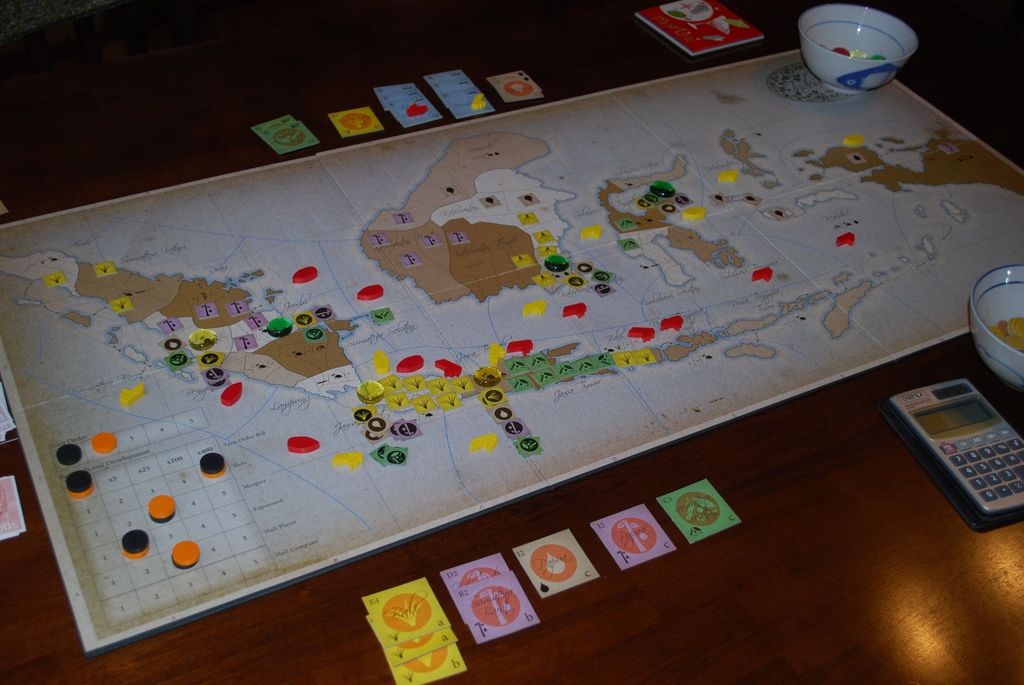
Economic Complexity in Indonesia: A Deep Dive
When it comes to the economic system in Indonesia, prepare for a brain workout. This game’s economic structure is not for the faint-hearted. At its core, Indonesia is a simulation of economic principles, involving production, shipping, and mergers. Players must manage these aspects efficiently while competing against others for profitability and control. The game forces you to think several steps ahead, planning your moves with precision and strategic foresight. The complexity comes from not just managing your current resources but predicting market trends and opponent moves. It’s a balancing act between expanding your business empire and ensuring your companies are attractive for mergers, offering a unique challenge every time you play.
Ready to shift gears from economics to aesthetics? Let’s dive into the next exciting aspect of Indonesia – the component quality and artwork.
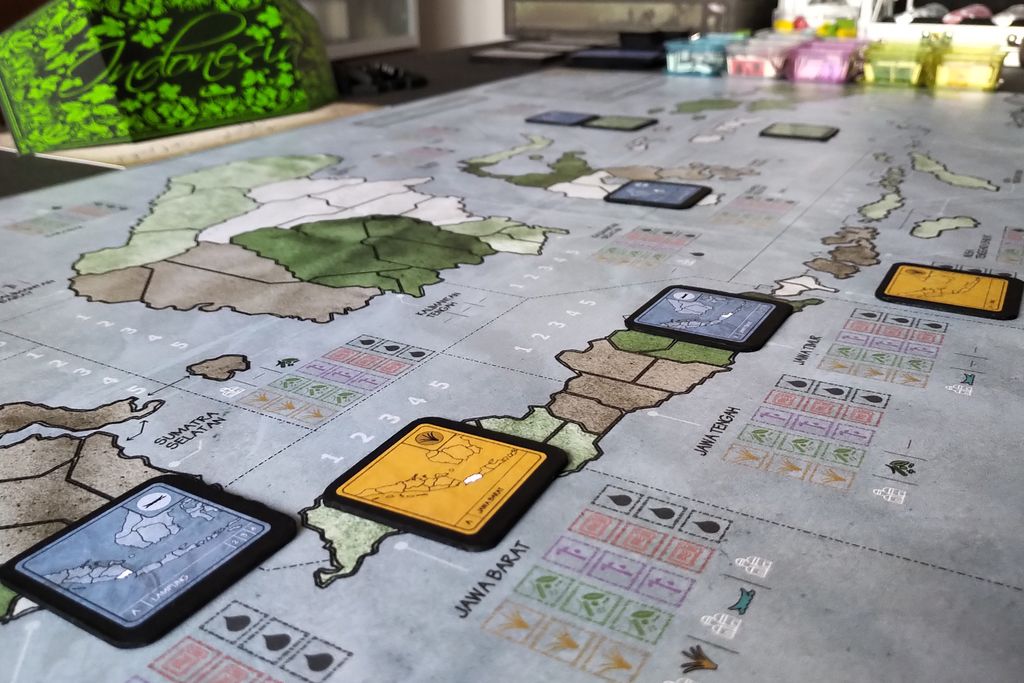
Component Quality and Artwork in ‘Indonesia’
When we dive into the world of ‘Indonesia’, we’re not just talking about a rich, economic strategy game. We’re touching, feeling, and seeing the sheer quality that’s been poured into its components and artwork. From the sturdy game board that maps out the islands of Indonesia to the detailed wooden tokens representing various goods, every piece feels like it was made to last. And let’s not overlook the artwork! It’s like someone took a paintbrush and captured the essence of Indonesia’s vibrant culture and lush landscapes, then splashed it all over this game. The illustrations on the cards and board aren’t just pretty to look at; they help immerse you in the game, making each playthrough not just a strategic challenge, but a visual journey through Indonesia.
But, as we admire the artwork and quality of the pieces, let’s sail towards the next critical aspect of ‘Indonesia’ we need to explore – the balance and fairness between players.
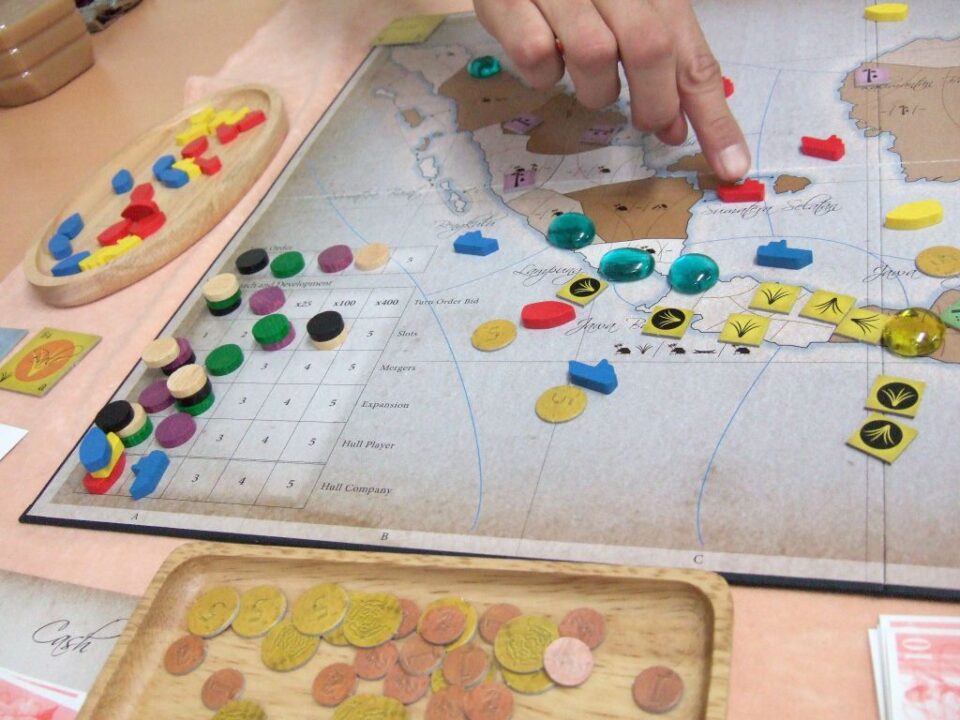
Mastering Balance and Fairness in Indonesia
When diving into ‘Indonesia’, one thing that stands out is the balance and fairness it offers between players. The game brilliantly manages to give each player equal opportunities to thrive, despite the complex economic mechanics at play. It’s a rare feat in strategy games, where often, the luck of the draw or an early lead can skew the competition.
The game’s economic system is a leveled playing field, requiring players to think ahead, strategize, and adapt. This doesn’t mean that every game ends in a neck-and-neck finish, but rather, that every player, regardless of their starting position, has a fighting chance to clinch victory through smart decisions and strategic planning. ‘Indonesia’ stands as a testament to how well-designed games can balance complexity with fairness.
In conclusion, if you’re a fan of board games that challenge your strategic thinking without compromising on fairness, ‘Indonesia’ is a must-try. I wholeheartedly recommend it.
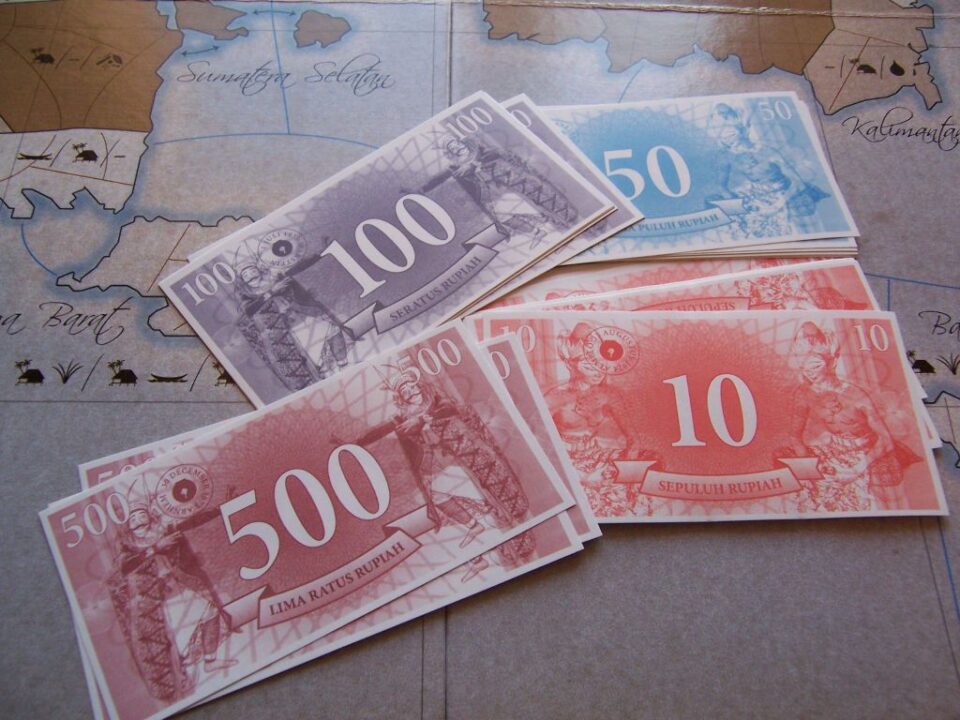
Conclusion
Wrapping up this review, ‘Indonesia’ is a jewel for anyone who loves a deep dive into economic strategy within board games. With its interesting blend of production, shipping, and company mergers, it keeps players on their toes, requiring forward thinking and smart planning. The components and artwork are top-notch, enhancing the overall experience. While the game is complex and may take a game or two to fully grasp, the balance and fairness within its mechanics mean that everyone has a shot at victory, making every game session a new adventure. Whether you’re playing with friends or family, ‘Indonesia’ promises engaging gameplay that’s as entertaining as it is challenging. Just be ready for a bit of a learning curve, but trust me, it’s worth the ride. So, if you’re in the market for a game that tests your strategic abilities and offers a rich, economic simulation experience, ‘Indonesia’ should definitely be on your list. Until next time, happy gaming!

